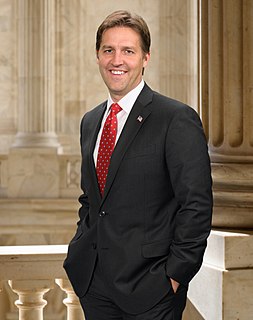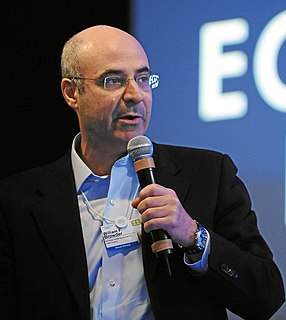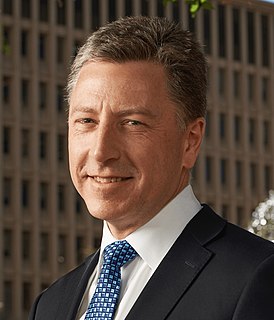A Quote by Jens Stoltenberg
We see a more assertive Russia, which has implemented a very significant military buildup over several years, and a Russia which has used military force against neighbors, especially Ukraine.
Related Quotes
I don't understand what the president's [Donald Trump] position is on Russia. But I can tell you what my position is on Russia: Russia is a great danger to a lot of its neighbors, and [Vladimir] Putin has as one of his core objectives fracturing NATO, which is one of the greatest military alliances in the history of the world.
Byrnes... was concerned about Russia's postwar behavior. Russian troops had moved into Hungary and Rumania, and Byrnes thought it would be very difficult to persuade Russia to withdraw her troops from these countries, that Russia might be more manageable if impressed by American military might, and that a demonstration of the bomb might impress Russia.
Russia is really a sort of a nonentity when it comes to - the economy is the size of the state of New York. Their military budget is 5 percent of the U.S. military budget. We shouldn't even be thinking about Russia other than the fact that they're sort of putting their nose into every bit of terrible activity all over the world.
In recent years the military has gradually been eased out of political life in Turkey. The military budget is now subject to much more parliamentary scrutiny than before. The National Security Council, through which the military used to exercise influence over the government is now a purely consultative body. But Turkish society still sees the military as the guarantor of law and order. The army is trusted, held in high regard - though not by dissident liberals. When things go wrong, people expect the military to intervene, as they've intervened over and over again in Turkish history.
I just have to tell you that the provocations by Russia need to be met with American strength. And if Russia chooses to be involved and continue, I should say, to be involved in this barbaric attack on civilians in Aleppo, the United States of America should be prepared to use military force to strike military targets of the Assad regime to prevent them from this humanitarian crisis that is taking place in Aleppo.
Putin imagined it would be different. So, like many Russian leaders before him, he imagined that Ukraine was basically Russia, but they speak with a funny accent. Actually, it's not Russia; it has a different identity. It has a very different language. Russians don't automatically understand Ukrainian. And, in particular, the way Ukraine has developed over the last two decades is different from the way Russia has developed.
The attitude of the West and of Russia towards a crisis like Ukraine is diametrically different. The West is trying to establish the legality of any established border. For Russia, Ukraine is part of the Russian patrimony. A Russian state was created around Kiev about 1,200 years ago. Ukraine itself has been part of Russia for 500 years, and I would say most Russians consider it part of Russian patrimony. The ideal solution would be to have a Ukraine like Finland or Austria that can be a bridge between these two rather than an outpost.
The wild open-market theory that died in 1929 had a run of just over thirty years. Communism, a complete melding of religious, economic, and global theories, stretched to seventy years in Russia and forty-five years in central Europe, thanks precisely to the intensive use of military and police force.


































